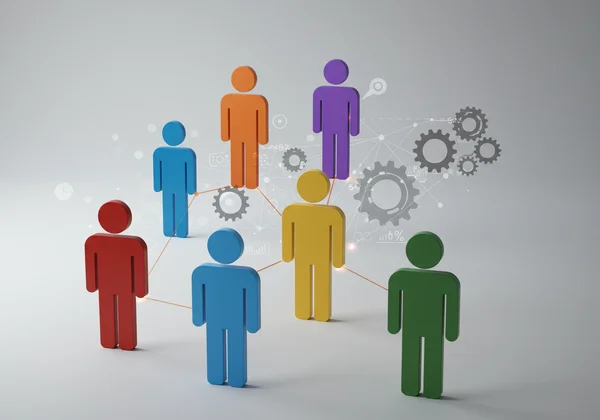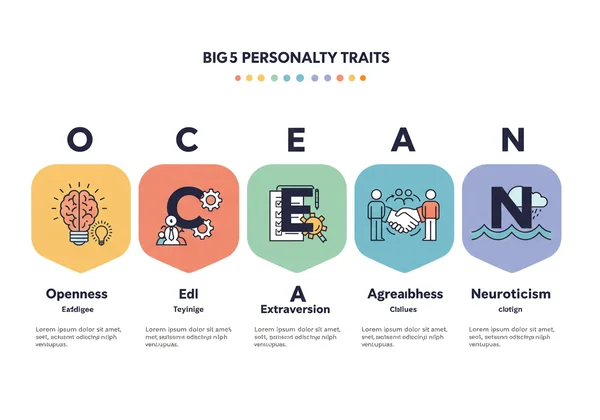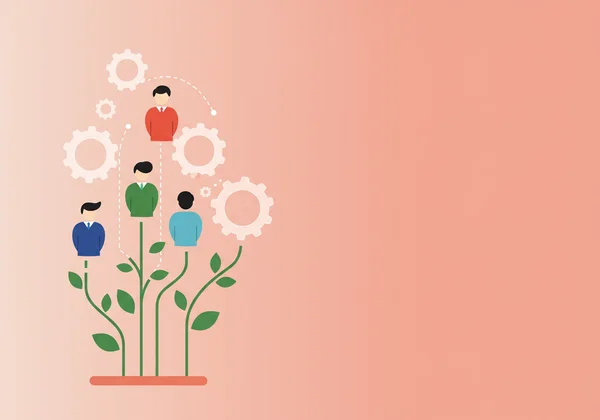Big 5 Personality Test for Effective Team Building
Unlock your team's full potential using scientific personality insights. Building a cohesive, high-performing team is crucial, but it often feels like guesswork. The Big 5 Personality Test provides a robust, scientifically validated framework to move beyond gut feelings, offering a clear path to understanding individual strengths, improving communication, and fostering collaboration. Discover how to leverage this powerful tool for data-driven team-building strategies. Begin by exploring a free personality test today.
Unlocking Team Dynamics with the Big 5 Model
Before you can build a better team, you must understand the individuals who form it. The Big 5 model provides a clear and reliable map of the human personality, breaking it down into five core dimensions. Unlike more simplistic typologies, this model measures traits on a spectrum, offering a nuanced view of each team member. This scientific approach is the foundation for creating a more aware and effective team environment.

The Five Core Traits: A Refresher for Managers
The Big 5 model is often remembered by the acronym OCEAN. Understanding these five core traits is the first step for any manager looking to apply personality insights.
-
Openness to Experience: This trait reflects a person's curiosity and creativity. High scorers are often imaginative and adventurous, thriving in roles that require innovation. Low scorers are more conventional and prefer familiar routines.
-
Conscientiousness: This is a key indicator of reliability and discipline. Highly conscientious employees are organized, detail-oriented, and dependable. Those lower on this scale are more spontaneous and flexible.
-
Extraversion: This dimension relates to where individuals draw their energy. Extraverts are outgoing and assertive, energized by social interaction. Introverts are more reserved and thoughtful, needing time alone to recharge.
-
Agreeableness: This trait measures a person's tendency to be cooperative and compassionate. High scorers are typically trusting and helpful team players. Low scorers are more competitive and analytical, unafraid to challenge the status quo.
-
Neuroticism: Also known as Emotional Stability, this trait reflects a person's resilience to stress. Individuals with low neuroticism are calm and emotionally stable, while those with high neuroticism may be more prone to anxiety and stress.

Why Personality Matters for Team Cohesion & Performance
Understanding personality is not just an interesting academic exercise; it has a direct impact on your bottom line. When team members understand their own tendencies and those of their colleagues, it dramatically improves team cohesion & performance. Diverse personalities can create a well-rounded team, but without awareness, these differences can lead to friction. A team aware of its personality composition can better navigate challenges, communicate effectively, and leverage individual strengths for collective success. This awareness turns potential conflict into a source of balanced perspective and innovation.
Strategic Role Assignment with Workplace Personality Assessment
One of the most powerful applications of the Big 5 is in optimizing team structure. Using a workplace personality assessment allows you to move beyond matching skills on a resume to aligning an individual's core nature with the demands of a role. This strategic alignment leads to higher job satisfaction, increased engagement, and superior performance across the board. The goal is to put people in positions where they can naturally thrive.

Matching Big 5 Traits to Team Roles
Effective matching big 5 traits to job functions can revolutionize your team's efficiency. For example, a sales role might benefit from a high-Extraversion individual who is energized by interaction, while a quality control position is better suited for someone with high Conscientiousness who pays close attention to detail. A research and development role would be a perfect fit for a person high in Openness who loves exploring new ideas. By understanding these connections, you can build a team where each member is intrinsically motivated and set up for success. You can discover your traits and see where you fit best.
Identifying Strengths and Gaps for Balanced Teams
A great team is more than just a collection of high-performers; it is a balanced ecosystem. By having your team members take a free test, you can map out the group's overall personality profile. This process helps you in identifying strengths and gaps for balanced teams. Do you have a team full of agreeable people who may avoid difficult conversations? Or perhaps your team is low on Conscientiousness and struggles with deadlines. These insights allow you to make strategic hires, form project groups effectively, and provide targeted training to create a more resilient and versatile unit.
Navigating Conflict & Enhancing Communication
Interpersonal friction is inevitable in any group, but personality insights can transform how your team handles it. By understanding the "why" behind a colleague's behavior, team members can approach disagreements with empathy instead of judgment. This fosters a psychologically safe environment where diverse viewpoints can be shared constructively, leading to better decisions and stronger relationships.

Proactive Conflict Resolution through Trait Understanding
Understanding personality allows for proactive conflict resolution through trait understanding. For instance, knowing a team member is low in Agreeableness means their direct, critical feedback is not a personal attack but their natural way of processing information. Recognizing that a colleague high in Neuroticism may react more strongly to stress allows you to approach them with more sensitivity during high-pressure periods. This foresight helps managers and teams de-escalate potential issues before they damage morale and productivity. These actionable insights are invaluable for any leader.
Tailoring Communication Styles for Diverse Personalities
Effective communication is not one-size-fits-all. Tailoring communication styles for diverse personalities is a hallmark of great leadership. An extraverted team member might prefer a brainstorming session to discuss ideas, whereas an introverted colleague would provide more thoughtful input if given time to prepare their thoughts via email. When presenting feedback, a highly conscientious employee will appreciate specific, detailed points, while someone high in Openness may be more receptive to big-picture ideas. Using a scientific personality test provides the data you need to make these adjustments.
Ethical Considerations & Best Practices for Employee Assessment
Implementing any form of employee assessment comes with significant responsibility. To build trust and ensure a positive impact, it is crucial to use personality tests ethically. The Big 5 test should be positioned as a tool for development and understanding, not for labeling or limiting individuals. Clear communication about the purpose, confidentiality, and application of the results is paramount.
Ensuring Fairness and Confidentiality in the Workplace
When using personality assessments, ensuring fairness and confidentiality in the workplace is non-negotiable. Results should be kept private and used only for developmental purposes agreed upon by the employee. It is unethical to use these tests to make hiring or promotion decisions in isolation. The Big 5 provides insights into preferences and tendencies, not skills or capabilities. Upholding these principles ensures the process is perceived as a supportive benefit rather than an invasive evaluation.
Beyond Assessment: Fostering Growth and Development
The true value of the Big 5 test is realized when you move beyond assessment: fostering growth and development. The results should serve as the starting point for meaningful conversations about career paths, professional growth, and personal well-being. Managers can use this information to coach employees more effectively, helping them leverage their strengths and develop strategies to manage their challenges. This approach transforms a simple test into a continuous cycle of improvement and empowerment for your entire team.

Empowering Your Team with Big 5 Insights
True team effectiveness stems from understanding and empowering each individual. The Big 5 Personality Test offers the scientific framework to achieve this, transforming assumptions into actionable insights. With it, you can strategically assign roles, enhance communication, proactively resolve conflicts, and cultivate profound professional growth. This data-driven approach fosters not just better teams, but a more engaged, productive, and supportive workplace culture.
Ready to unlock your team's potential? Start the free test on our leading Big 5 Personality Test platform to gain the actionable insights you need to build a stronger, more cohesive team today.
Frequently Asked Questions About Big 5 for Teams
Is the Big 5 Personality Test suitable for professional team settings?
Absolutely. The Big 5 is one of the most respected and scientifically validated personality models used in psychological research and organizational development. Its focus on stable traits rather than rigid types makes it an excellent tool for understanding workplace dynamics, improving communication, and guiding professional development in a team context.
How accurate are Big 5 results for employee evaluations?
The Big 5 provides a highly reliable and accurate measure of core personality traits. However, it's crucial to remember that it is not a performance evaluation tool. It measures how a person tends to think, feel, and behave, not their skills or job competence. It should be used for developmental insights, not for performance ratings. For a better understanding, discover your results.
What's the difference between Big 5 and other personality tests for HR?
While other tests like the Myers-Briggs (MBTI) are popular, the Big 5 is widely preferred in scientific and academic circles for its empirical validity and reliability. The Big 5 measures traits on a continuum, providing a more nuanced picture than the binary categories of many other tests. This makes it a more robust tool for professional applications where subtle differences matter.
How can our Big 5 Personality Test platform support our team building initiatives?
Our platform offers a free, accessible, and scientifically grounded Big 5 Personality Test that your entire team can take. After completing the assessment, you can use the individual results to facilitate discussions, plan team-building activities, and make more informed decisions about roles and responsibilities. Our optional AI-powered reports provide even deeper, personalized insights to guide your team's growth and success.